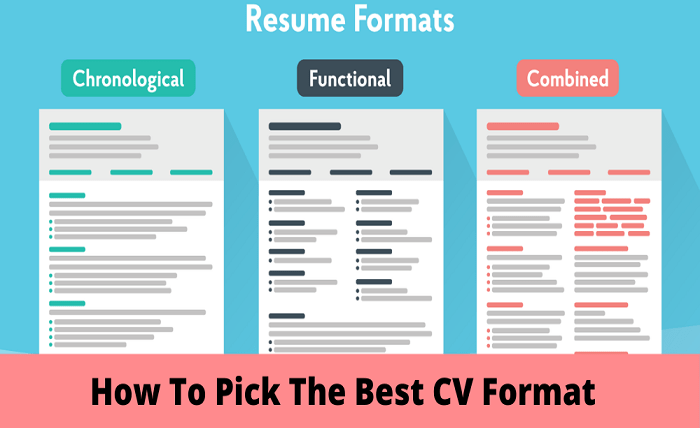
What is the Best CV Format?
There are several types of CV formats. However, depending on the position, one type is usually better than another. For school leavers and recent graduates, a single-sided A4 CV will do. Three-page CVs, however, are not common, but they are best for people with several years of experience, high-level roles, and experience in several areas. Some academic or medical CVs are longer than the standard format, so make sure you don’t sell yourself short.
Functional resumes do not include bullet points. Bullet points represent key achievements or events in your work history. Examples include increased revenues, reduced expenses, and improved productivity. Career highlights are also important to highlight. They show potential employers that you’ve been successful in previous positions. For instance, in one resume, the writer grouped work history for the period 1986-1991 together. While this format is a good fit for traditional industries, it’s not the best choice when you’re applying for a job that requires a different skill set.
If you’re looking for a job, the education section should be listed above work experience. Education shows your potential for the position. If you’re still a student, a functional CV might be better. If you’re in the early stages of your career, include your A-levels with your degree, but only if you’ve completed your GCSEs. In addition, you should include the name of relevant modules from your university course.
Chronological resumes are best for workers with limited experience, workers changing careers, and people returning to the workforce after a long break. Chronological resumes typically include a brief summary of your career. Typically, a chronological resume lists work experience in reverse chronological order. The most recent job is at the top. The chronological resume format is the most common. It’s important to avoid making the resume too long if you’re applying for a job that requires multiple years of experience.
If you’re changing careers, it’s worth remembering that chronological resumes aren’t suitable for all candidates. For example, if you’re applying for a project manager role, you should use the chronological resume format. Likewise, if you’re applying for an administrative assistant position, a functional resume would be best. For the most part, however, the chronological resume format is appropriate for job candidates who have a history of consistent employment with a clear career trajectory.




